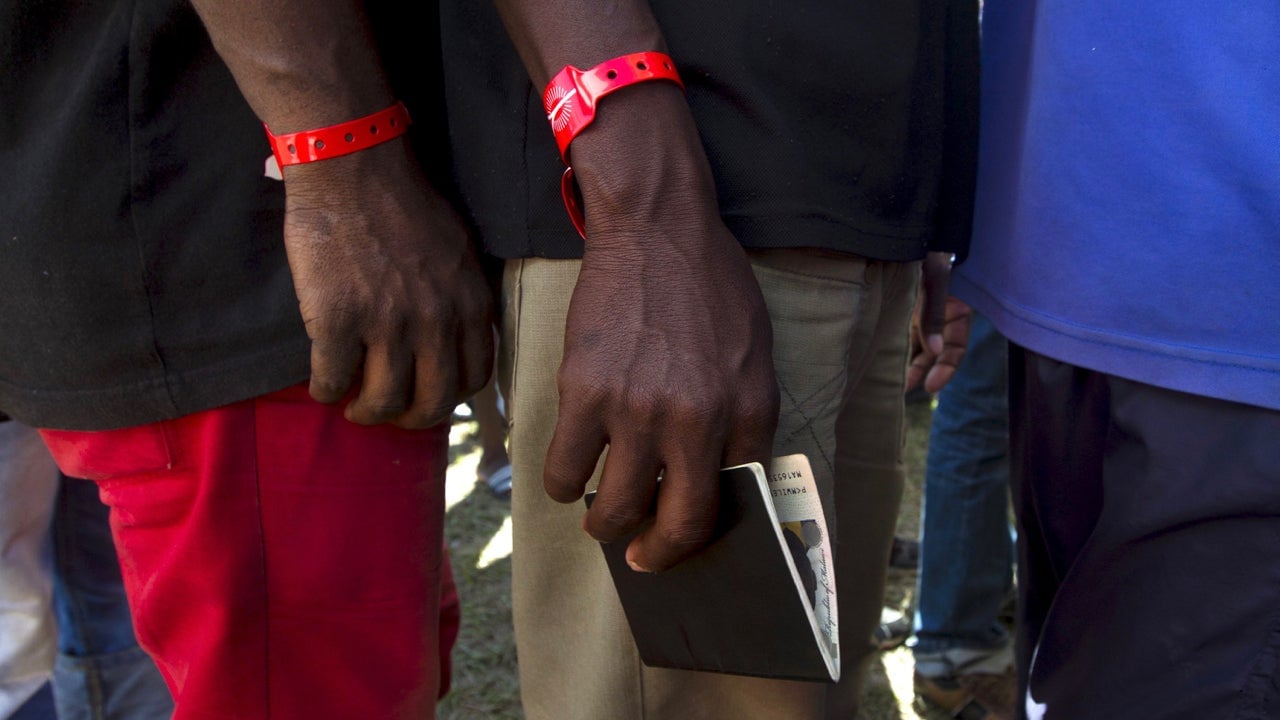South Africa is easing visa restrictions for Chinese and Indian visitors, but not Africans
China and India are the big winners in South Africa’s newly relaxed rules on visas. Starting next month, most business travelers will be issued five-year, multiple-entry visas on arrival; business travelers from the BRICS countries, including China and India, could be granted 10-year, multiple-entry visas, without having to apply in person.


China and India are the big winners in South Africa’s newly relaxed rules on visas. Starting next month, most business travelers will be issued five-year, multiple-entry visas on arrival; business travelers from the BRICS countries, including China and India, could be granted 10-year, multiple-entry visas, without having to apply in person.
While Western nations are increasingly closing their borders, Africa’s most advanced economy recognizes that open borders mean an open economy. South Africa’s department of Home Affairs announced the eased restrictions on visas on Tuesday (Sept. 25), as part of president Cyril Ramaphosa’s economic stimulus and recovery plan announced on Sept. 21. The plan is aimed at reinvigorating the country’s floundering economy, by making tourism, business, and special-skills visas easier to obtain.
South Africa also eased its visa regulations for traveling with children, rolling back its strict requirement that parents must produce an unabridged birth certificate. All restrictions fall away for international visitors, while South Africans still will be required to prove parental consent.
The country’s home affairs department instituted strict rules on traveling with minors in 2014, saying it was a response to child trafficking and local regulation on parental rights. Yet, it is believed the rules cost South Africa millions of dollars—the exact losses are still being calculated, but it’s estimated to be approximately 500 million rand ($34.9 million)—even as the rules were partially eased earlier this year.
There were no material changes announced for rules applying specifically to other African travelers. Angola already has visa-free travel as of last December, and 15 of the 16 countries in the Southern African Development Community also do not need visas. However, the Home Affairs department said it is looking at aligning South Africa’s laws with the African Union’s free movement agenda, and the country is in negotiations to finalize visa-waiver agreements with Algeria, Egypt, Morocco, Sao Tome & Principe, Tunisia, the Saharawi-Arab Democratic Republic, and Ghana.
Many of the eased restrictions are aimed at boosting tourism, which accounts for 2.9% of South Africa’s GDP. “Even though in 2015 we had a 12% increase and the next year we had a 7% increase, that could have been a double digit, 20%, 30% based on South Africa’s tourism potential,” Unathi Henama, a tourism lecturer at the Tshwane University of Technology told a local television channel after the announcement. For every 12 tourists arriving in the country, one job is created, in a sector that already boasts more jobs than the mining sector, said Henama.
Open borders are part of a four-tier plan that looks at economic reform, job creation, building infrastructure and improving health and education. Ramaphosa’s new plan will see the national budget redirected toward areas like agriculture development and boosting business development in rural areas and townships, South Africa’s formerly segregated areas on the outskirts of cities.
The new visa regulations will also extend to attracting critical skills, with plans to extend the list of skills. Yet, as South Africa looks set to shed more jobs, particularly in the public sector, it’s unclear how the aim to attract skilled foreigners will be interpreted by the public. The country is home to more than 2 million immigrants, just over 3.6% of the national population. South Africa, however, already struggles with xenophobia, as African immigrants in particular become the target of violence in impoverished areas.
Since taking office in February, Ramaphosa has been at pains to restore international investor confidence. Yet, his marketing efforts have been blighted by realities on the ground. At the end of second quarter, South Africa’s unemployment rose to 27.2%. What’s more, the country went into a technical recession for the first time since 2009.
Sign up to the Quartz Africa Weekly Brief here for news and analysis on African business, tech and innovation in your inbox